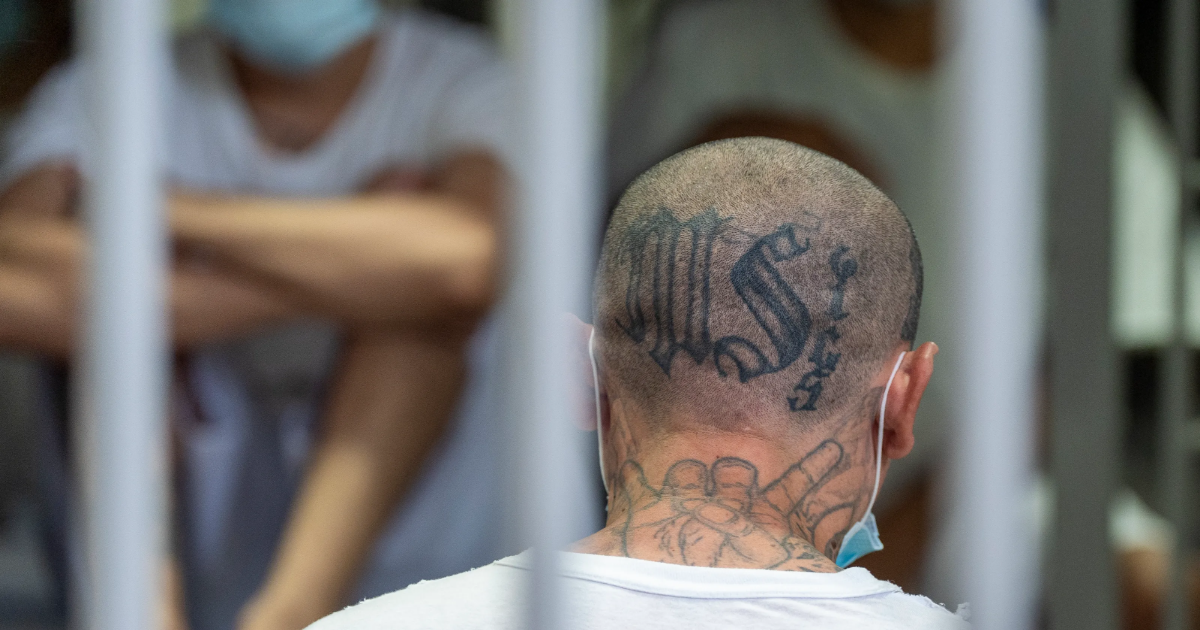
The Trump administration acknowledged Monday “an administrative error” led to the deportation of a native of El Salvador but the government has no interest in returning the alleged member of MS-13 to his wife and his child with a disability, according to court documents.
Kilmar Armando Abrego-Garcia, a resident of Beltsville, Maryland, was among the hundreds of alleged members of crime gangs MS-13 and Venezuela’s Tren de Aragua the government expelled from the U.S. to El Salvador on March 15.
But he had won a court order from an immigration judge in 2019 that was supposed to prevent his removal. His wife, Jennifer Stefania Vasquez Sura, and his 5-year-old disabled child, who are both U.S. citizens, filed a lawsuit March 24 calling for his return.
In filings Monday, government officials acknowledged the administrative mistake that sent Garcia to a notorious prison in El Salvador.
“This removal was an error,” Robert Cerna, Immigration and Customs Enforcement’s acting field office director for enforcement and removal operations, said in a sworn statement.
Vice President JD Vance said in a post Tuesday on social media that Abrego-Garcia had “no legal right” to be in the U.S. In another post Vance said he failed to appear in court for “multiple traffic violations.”
“The man is an illegal immigrant with no right to be in our country,” Vance said.
The Atlantic magazine was the first to report on the case.
The case comes amid legal challenges to the Trump administration’s mass deportations. President Donald Trump declared MS-13 and Tren de Aragua foreign terrorist organizations and moved to remove alleged members under a variety of immigration statutes.
Trump also invoked the Alien Enemies Act to remove alleged members of Tren de Aragua more hastily. But Chief U.S. Judge James Boasberg temporarily blocked the deportations under the Alien Enemies Act until the suspects had been given a chance to deny their membership in the gang. The Trump administration has appealed the ruling to the Supreme Court.
Abrego-Garcia was ordered deported in in March 2019, after a confidential informant testified that he was an active member of the MS-13 gang, according to government lawyers.
Abrego-Garcia then applied for asylum, asking for protection under the United Nations Convention Against Torture if he were returned to El Salvador. An immigration judge found he was deportable, but withheld his removal in October 2019.
ICE stopped Abrego-Garcia on March 12, telling him that his immigration status had changed, according to his wife’s lawsuit. After being detained and questioned, he was sent to Harlingen, Texas, where he was flown under Title 8 of the immigration laws to El Salvador’s CECOT prison.
His wife recognized him among detainees in a video from the prison because of his tattoos and head scars, according to the lawsuit.
Cerna said the deportations to El Salvador were designed to include only people who faced no impediments to removal. Abrego-Garcia had been an alternate on the flight but moved up on the list as others were dropped off.
“Through administrative error, Abrego-Garcia was removed from the United States to El Salvador,” Cerna said. “This was an oversight, and the removal was carried out in good faith based on the existence of a final order of removal and Abrego-Garcia’s purposed membership in MS-13.”
Government lawyers said Abrego-Garcia has been found a danger to the community so the public interest is against ordering the government “to orchestrate his return to the United States.”
